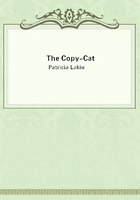
第13章 JOHNNY-IN-THE-WOODS(1)
JOHNNY TRUMBULL, he who had demon-
strated his claim to be Cock of the Walk by a most impious hand-to-hand fight with his own aunt, Miss Janet Trumbull, in which he had been deci-sively victorious, and won his spurs, consisting of his late grandfather's immense, solemnly ticking watch, was to take a new path of action. Johnny suddenly developed the prominent Trumbull trait, but in his case it was inverted. Johnny, as became a boy of his race, took an excursion into the past, but instead of applying the present to the past, as was the tendency of the other Trumbulls, he forcibly applied the past to the present. He fairly plastered the past over the exigencies of his day and generation like a penetrating poultice of mustard, and the results were peculiar.
Johnny, being bidden of a rainy day during the midsummer vacation to remain in the house, to keep quiet, read a book, and be a good boy, obeyed, but his obedience was of a doubtful measure of wisdom.
Johnny got a book out of his uncle Jonathan Trum-bull's dark little library while Jonathan was walking sedately to the post-office, holding his dripping umbrella at a wonderful slant of exactness, without regard to the wind, thereby getting the soft drive of the rain full in his face, which became, as it were, bedewed with tears, entirely outside any cause of his own emotions.
Johnny probably got the only book of an anti-orthodox trend in his uncle's library. He found tucked away in a snug corner an ancient collection of Border Ballads, and he read therein of many unmoral romances and pretty fancies, which, since he was a small boy, held little meaning for him, or charm, beyond a delight in the swing of the rhythm, for Johnny had a feeling for music. It was when he read of Robin Hood, the bold Robin Hood, with his dubious ethics but his certain and unquenchable interest, that Johnny Trumbull became intent. He had the volume in his own room, being somewhat doubtful as to whether it might be of the sort included in the good-boy role. He sat beside a rain-washed window, which commanded a view of the wide field between the Trumbull mansion and Jim Simmons's house, and he read about Robin Hood and his Greenwood adventures, his forcible setting the wrong right; and for the first time his imagina-tion awoke, and his ambition. Johnny Trumbull, hitherto hero of nothing except little material fist-fights, wished now to become a hero of true romance.
In fact, Johnny considered seriously the possi-bility of reincarnating, in his own person, Robin Hood. He eyed the wide green field dreamily through his rain-blurred window. It was a pretty field, waving with feathery grasses and starred with daisies and buttercups, and it was very fortunate that it happened to be so wide. Jim Simmons's house was not a desirable feature of the landscape, and looked much better several acres away. It was a neglected, squalid structure, and considered a dis-grace to the whole village. Jim was also a disgrace, and an unsolved problem. He owned that house, and somehow contrived to pay the taxes thereon.
He also lived and throve in bodily health in spite of evil ways, and his children were many. There seemed no way to dispose finally of Jim Simmons and his house except by murder and arson, and the village was a peaceful one, and such measures were entirely too strenuous.
Presently Johnny, staring dreamily out of his window, saw approaching a rusty-black umbrella held at precisely the wrong angle in respect of the storm, but held with the unvarying stiffness with which a soldier might hold a bayonet, and knew it for his uncle Jonathan's umbrella. Soon he beheld also his uncle's serious, rain-drenched face and his long ambling body and legs. Jonathan was coming home from the post-office, whither he repaired every morning. He never got a letter, never anything except religious newspapers, but the visit to the post-office was part of his daily routine. Rain or shine, Jonathan Trumbull went for the morning mail, and gained thereby a queer negative enjoy-ment of a perfectly useless duty performed. Johnny watched his uncle draw near to the house, and cruelly reflected how unlike Robin Hood he must be. He even wondered if his uncle could possibly have read Robin Hood and still show absolutely no result in his own personal appearance. He knew that he, Johnny, could not walk to the post-office and back, even with the drawback of a dripping old umbrella instead of a bow and arrow, without looking a bit like Robin Hood, especially when fresh from reading about him.
Then suddenly something distracted his thoughts from Uncle Jonathan. The long, feathery grass in the field moved with a motion distinct from that caused by the wind and rain. Johnny saw a tiger-striped back emerge, covering long leaps of terror.
Johnny knew the creature for a cat afraid of Uncle Jonathan. Then he saw the grass move behind the first leaping, striped back, and he knew there were more cats afraid of Uncle Jonathan. There were even motions caused by unseen things, and he reasoned, "Kittens afraid of Uncle Jonathan."Then Johnny reflected with a great glow of indigna-tion that the Simmonses kept an outrageous num-ber of half-starved cats and kittens, besides a quota of children popularly supposed to be none too well nourished, let alone properly clothed. Then it was that Johnny Trumbull's active, firm imagination slapped the past of old romance like a most thorough mustard poultice over the present. There could be no Lincoln Green, no following of brave outlaws (that is, in the strictest sense), no bows and arrows, no sojourning under greenwood trees and the rest, but something he could, and would, do and be.
That rainy day when Johnny Trumbull was a good boy, and stayed in the house, and read a book, marked an epoch.